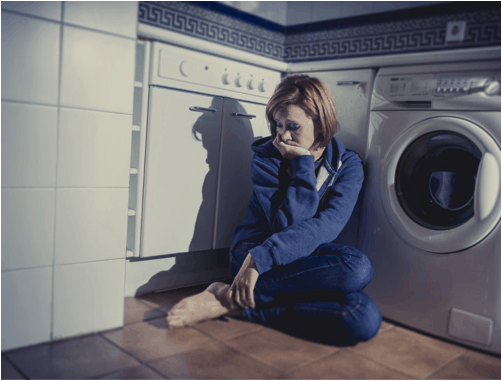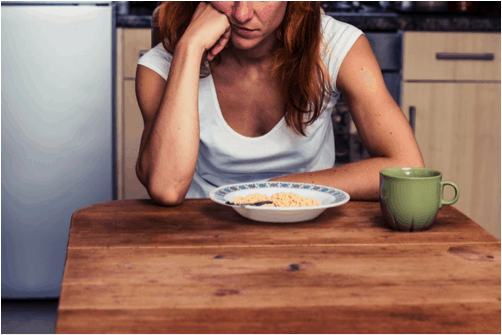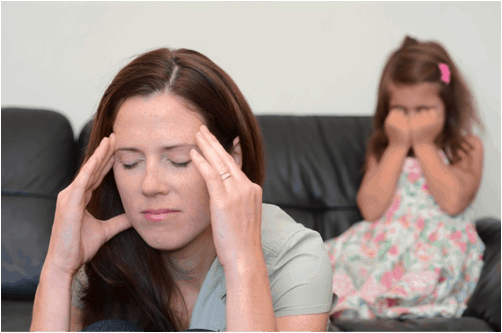 Parenthood has to be one of the most challenging endeavors a person ever has to cope with — from a physical, mental, emotional, and even financial perspective. From the pressure of being a good parent, to the lack of sleep, money, and personal time that tends to come with the job, there are a lot of factors that can impact negatively on a mother and father over the years. Women in particular seem to be susceptible to suffering depression after having a child.
Parenthood has to be one of the most challenging endeavors a person ever has to cope with — from a physical, mental, emotional, and even financial perspective. From the pressure of being a good parent, to the lack of sleep, money, and personal time that tends to come with the job, there are a lot of factors that can impact negatively on a mother and father over the years. Women in particular seem to be susceptible to suffering depression after having a child.
From the common ailment of post-partum depression, to issues with balancing motherhood and a career (all while typically feeling judged by friends, family members and society in general), many moms find their mental and physical wellbeing affected negatively once they become a parent.
Whether you’re struggling yourself, or have noticed others moms that seem to be spiralling, it’s a good idea to understand the signs of depression. If you notice any of these signs in yourself or others, the sufferer may benefit from speaking to a counselor or other trained health care professional, or encourage them to check into a facility that specializes in mood disorder treatment. Read on for the top symptoms you should be on the lookout for.
1. Changes in Appetite and Weight Gain or Loss
One of the first things you might notice about a friend or family member suffering from depression is that they are eating more or less than normal. While most people on occasions will over indulge or just don’t feel hungry, changes in appetite that last for a period of time (usually a couple of weeks), and also lead to fast weight gain or loss, might point to depressive feelings.
Many parents either binge on food to try to forget about their worries, or alternatively don’t feel like eating at all when unhappy and stressed. In particular, many mothers often suffer from low self-esteem after gaining weight during pregnancy, and from having less time to exercise or prepare healthy meals once their child is born. This can lead to depressive feelings and even eating disorders, so is an important sign to be aware of.
2. Loss of Interest in Things Normally Enjoyed
Another common sign of depression is social withdrawal, and a general loss of interest in normal activities. When people are feeling blue for sustained periods of time, they tend to want to avoid company. You might notice that a friend stops wanting to meet for your regular coffee catch-ups, or that your husband never wants to go out anymore, and retreats further and further into his shell.
Oftentimes if parents are suffering from depression they will withdraw from all of their normal activities such as playing sports, going to school events, seeing extended family, date nights, or any type of outing that would normally be high on the list of things to fit in on weekends or other time off. If you notice someone is consistently avoiding social interactions, try to encourage them to get out and about, even is for just a little. Sometimes simply opening the lines of communication and offering a safe place to speak can do wonders.
3. Feelings of Guilt, Hopelessness and Worthlessness
 After becoming a parent and finding life has changed dramatically and permanently, many people find themselves sinking into depression. Whether this is caused by post-natal depression, weight gain, or, very often, worry about being a good parent, negative self-talk and loss of self-esteem can have a big impact on quality of life. Parents can suffer from feelings of guilt, hopelessness, and worthlessness that stem from worries about body image, parenting skills, money, familial relationships, career, health, and much more.
After becoming a parent and finding life has changed dramatically and permanently, many people find themselves sinking into depression. Whether this is caused by post-natal depression, weight gain, or, very often, worry about being a good parent, negative self-talk and loss of self-esteem can have a big impact on quality of life. Parents can suffer from feelings of guilt, hopelessness, and worthlessness that stem from worries about body image, parenting skills, money, familial relationships, career, health, and much more.
Take note if you hear someone talking negatively about themselves on a regular occasion. We all tend to doubt ourselves at time, but people suffering from depression often focus solely on beliefs about themselves that are harmful to their self-esteem. For example, you might hear phrases spoken such as “I’m a failure,” “People would be better off without me,” “I’m a terrible person/parent,” “I’m worthless,” or “It’s all my fault.”
4. Insomnia and Fatigue
When in a depressed state, the sleeping patterns of many people will also change. While of course parents generally have to struggle with less sleep when they have little ones waking them up on a regular basis, new sleep disturbances can be a sign that something more psychological in nature is going on. People suffering from depression regularly report having issues such as insomnia or frequent nightmares that keep them from getting enough sleep.
As well, often when someone is depressed, they can feel fatigued all the time, no matter how many hours of sleep each day they may get. If a lack of energy and disturbed sleep patterns linger for a while, and are accompanied by a low mood and other such signs, they may in fact be pointing to depression.
5. Difficulty Concentrating
 Similarly, cognitive impairment such as difficulty concentrating is another symptom of depression. Parents can certainly have trouble focusing from time to time when they’re distracted by family matters or other issues that need to be dealt with, however pronounced changes in concentration levels or memory that just don’t improve can be a worry. Look out for signs that a person is struggling to maintain their work quality on the job, or to stay afloat maintaining the household.
Similarly, cognitive impairment such as difficulty concentrating is another symptom of depression. Parents can certainly have trouble focusing from time to time when they’re distracted by family matters or other issues that need to be dealt with, however pronounced changes in concentration levels or memory that just don’t improve can be a worry. Look out for signs that a person is struggling to maintain their work quality on the job, or to stay afloat maintaining the household.
If you spot one or more of these symptoms in a friend or family member, that person may be in crisis. If you’re worried about their wellbeing, it’s important to help them as soon as possible. Just showing them that you care about them can also be a good start, but if they seem to be in danger of self-harming, it’s vital that you take measures to get them aid straight away. Call a doctor or emergency services, get them to speak to a counselor or other trained health care professional, or encourage them to visit a facility that helps with depression and anxiety.

